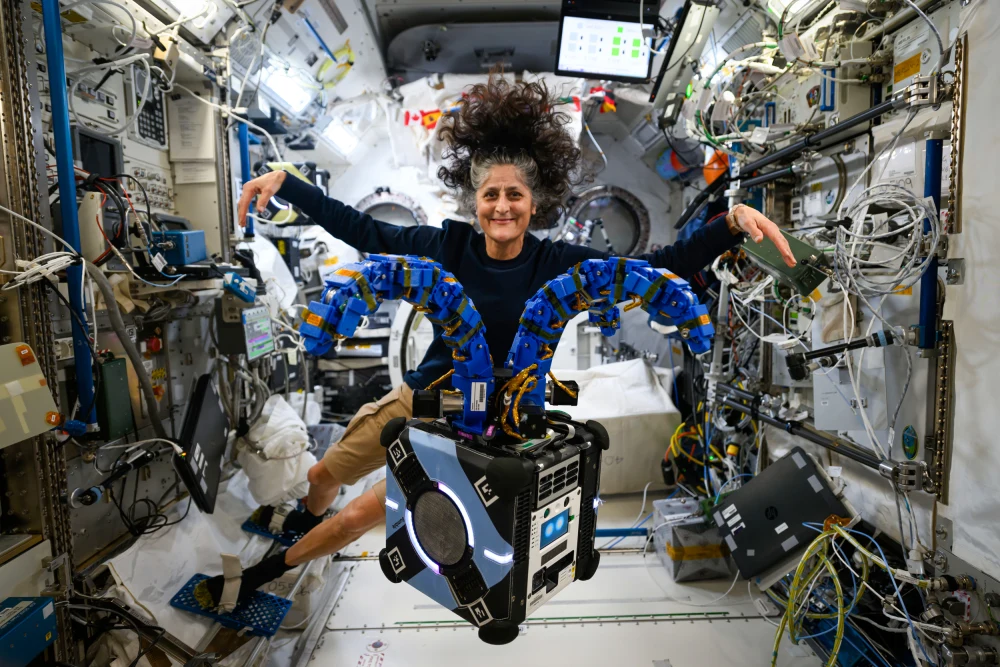A robotic device burned and tore a woman’s small intestine while she was undergoing surgery for colon cancer, according to a wrongful death lawsuit filed this week in Florida.
The woman, Sandra Sultzer, developed abdominal pain and fever after her surgery in September 2021 and needed additional procedures to close the tear, the lawsuit said. The suit said she died in February 2022 because of the small intestine injury.
Her husband, Harvey Sultzer, is suing the maker of the device, Intuitive Surgical, for damages.
The suit alleges that Intuitive Surgical knew the robot had insulation problems that might cause electricity to leak out and burn internal organs but didn’t disclose that risk to the Sultzers or the public.
It also claims that Intuitive sells its robots to hospitals that have no experience in robotic surgery and doesn’t properly train surgeons in how to use the device, known as the da Vinci. Intuitive does offer a training program, but an NBC News investigation in 2018 found that it can’t legally require surgeons to complete it.
Intuitive Surgical didn’t respond to a request for comment. Jack Scarola, a Florida attorney representing Harvey Sultzer, said neither he nor his client had any comment beyond the allegations in the suit.
Issues of such a nature go back more than a decade, according to the lawsuit.
The suit alleges that Intuitive has received thousands of reports about injuries and defects associated with the da Vinci but has “systematically underreported” injuries to the Food and Drug Administration.
A 2014 financial report that Intuitive filed with the Securities and Exchange Commission said the company at the time was a defendant in around 93 lawsuits.
The plaintiffs in about 93 suits “allege that they or a family member underwent surgical procedures that utilized the da Vinci Surgical System and sustained a variety of personal injuries and, in some cases, death as a result of such surgery,” the company wrote.
The company added that it also set aside $67.4 million in the first quarter of 2014 and $9.6 million in the second quarter so it could settle a number of product liability claims.
A case that went to trial in 2017 involved the use of the da Vinci robot during a woman’s hysterectomy. Intuitive said the claim was without merit, and it was settled for an undisclosed amount. A jury previously ruled in favor of Intuitive in a case in 2013 that alleged the company failed to provide sufficient training to doctors.
In its 2023 annual report, the company told the SEC that it was a defendant in “a number of individual product liability lawsuits” involving the same allegations.
Many doctors consider robotic surgery to be safe, but there’s debate about whether it’s more effective than traditional surgery. The technology is meant to make procedures more precise and less invasive, which in theory would lead to shorter and less painful recoveries.
Intuitive introduced the first version of the da Vinci system in 1999, when robotic surgery was still relatively novel. The FDA approved the system a year later.
According to Sultzer’s lawsuit, Intuitive received hundreds of complaints and reports about its da Vinci robot from July 2009 to December 2011. Many of the reports mentioned cracks or slits on a rubber tip used to cover da Vinci’s metal instruments, the suit said, adding that the defects allowed electricity to escape without surgeons’ knowledge.
In 2011, researchers from the University of Western Ontario flagged safety concerns with the device’s surgical instruments in a study. The researchers tested 37 instruments and found that all of them had “energy leakage,” which in some cases they determined was sufficient to cause electrical burns.
Then, in July 2013, the FDA sent a warning letter to Intuitive, citing several examples of its failure to comply with federal regulations. One of the examples involved the company’s sending letters to clients about how to use its tip covers — a response to complaints and reports of patient injuries.
“Though the field action was undertaken to reduce a risk to health posed by the device, you failed to report the field action to the FDA as required,” the FDA letter said.
By the time the letter was sent, Intuitive had already recalled the tip covers. A subsequent letter from the FDA in 2014 said Intuitive had addressed the violations cited in the warning.
But other adverse events associated with the da Vinci robot have been reported since then.
An NBC News analysis in 2018 identified more than 20,000 adverse events related to the da Vinci in the last 10 years, based on reports filed to the FDA’s MAUDE database, which tracks issues with medical devices. Most of the reports were related to malfunctions, some of which were minor. But 2,000 reports cited injuries, and 274 involved deaths.
In total, more than a dozen patients told NBC News in 2018 that they were burned or injured during procedures that involved the da Vinci. One woman’s medical records showed that her colon was damaged and her uterus was burned during a 2015 hysterectomy involving the robot.
Intuitive responded to the allegations at the time, saying the device’s safety was backed by scientific evidence.
“While any surgery regardless of modality carries risk, the best evidence of the safety and efficacy of robotic-assisted surgery can be found in the more than 15,000 peer-reviewed scientific publications that are fully grounded in scientific method and that, in aggregate, support the safety and efficacy of our systems,” it said.




